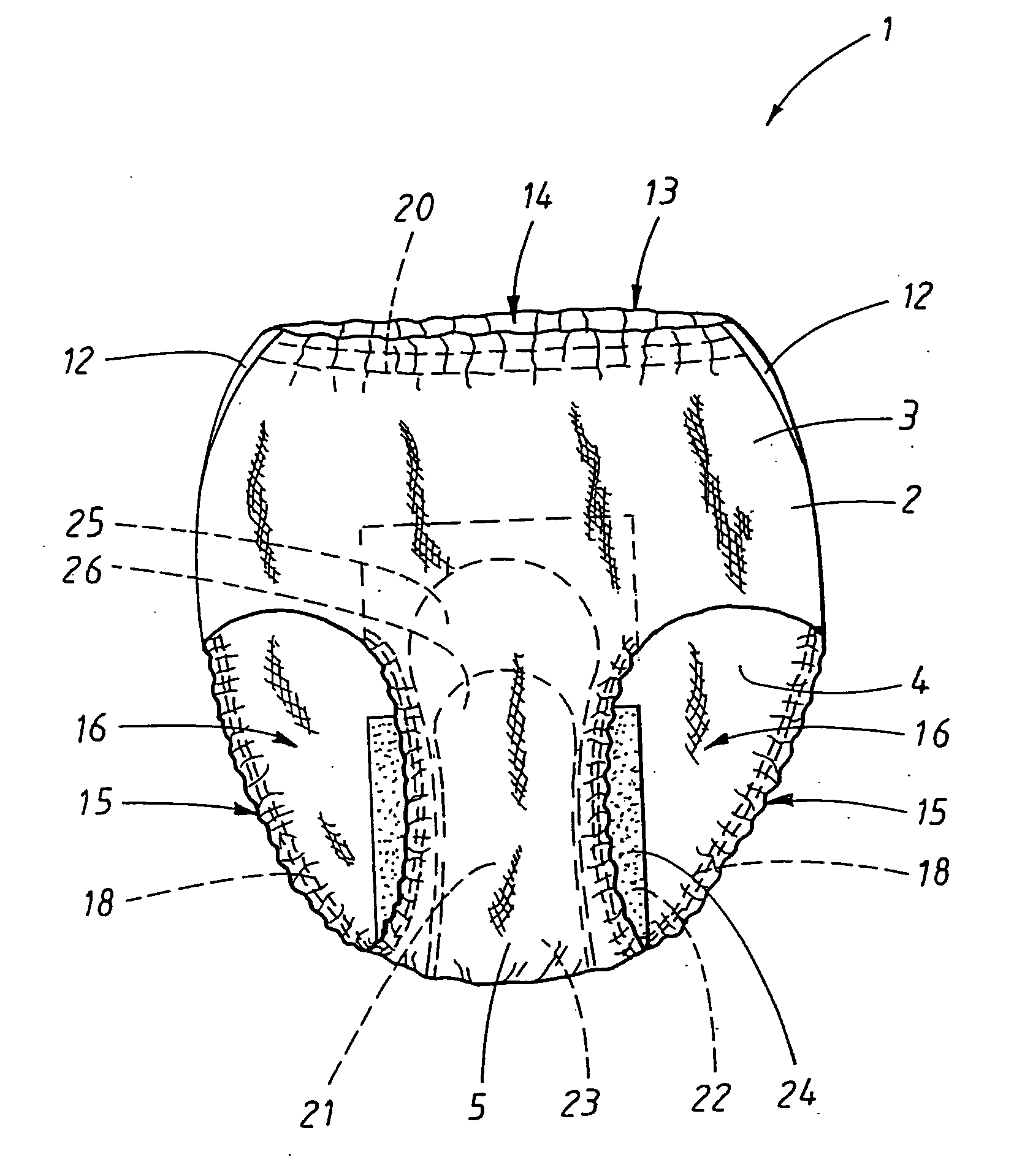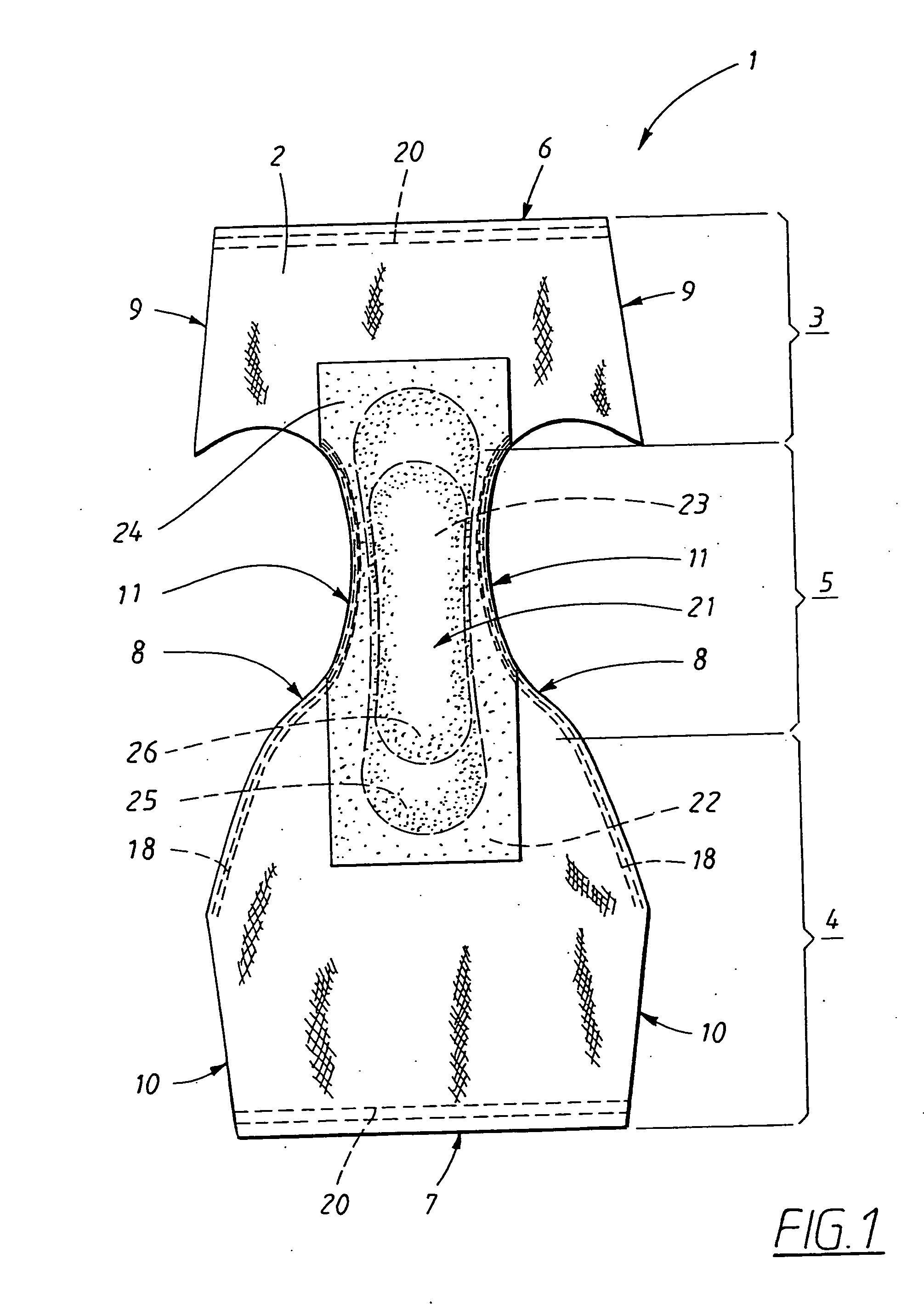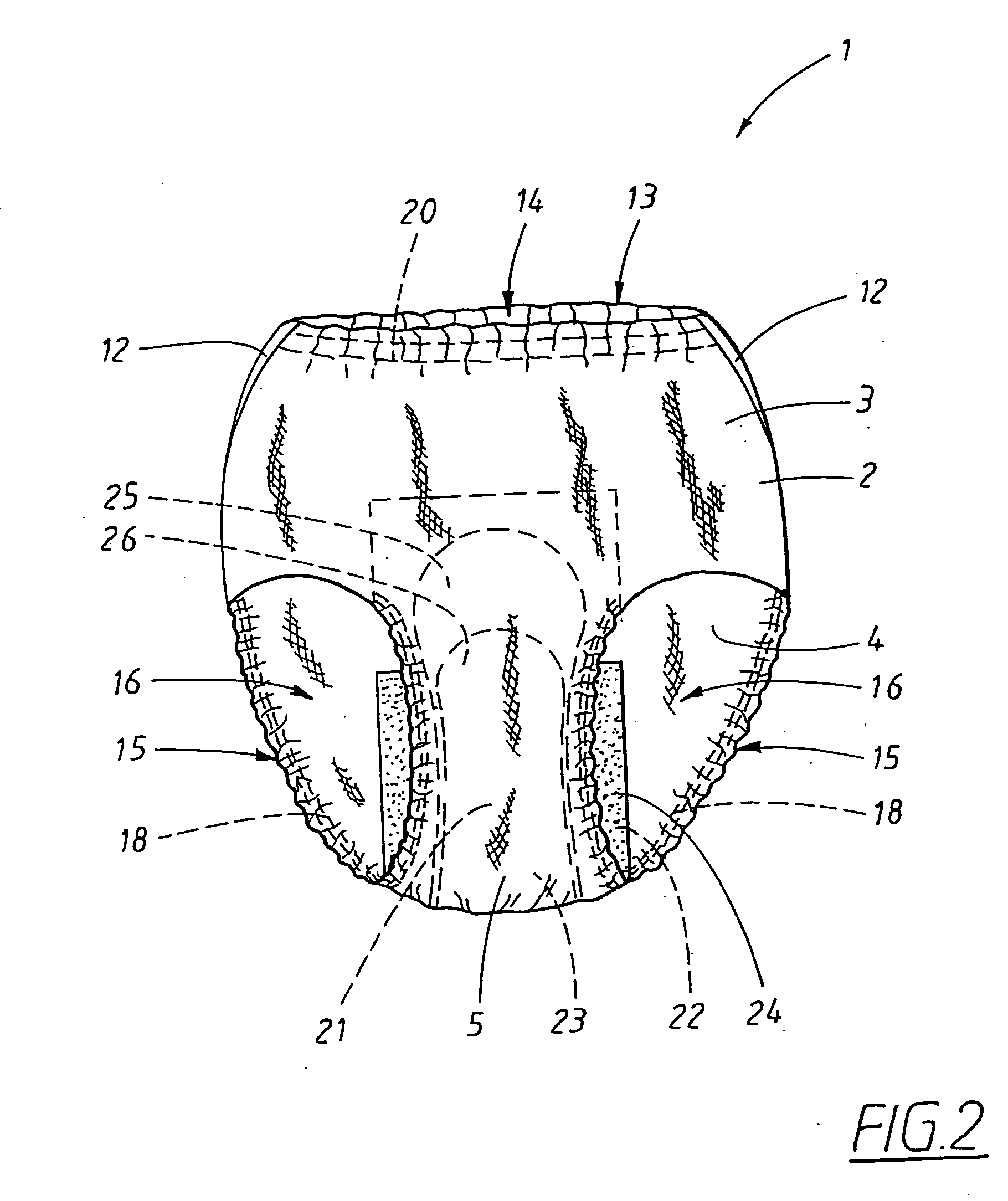Pant-shaped article with improved fit
a technology of pants and fittings, applied in the field of pants with improved fit, can solve the problems of affecting the quality of pants, affecting the appearance of pants, so as to reduce the risk of chafing and pressure on the hip bone, reduce the risk of chafing and pressure, and save material and production steps.
- Summary
- Abstract
- Description
- Claims
- Application Information
AI Technical Summary
Benefits of technology
Problems solved by technology
Method used
Image
Examples
Embodiment Construction
[0026]For the sake of clarity, the pant diaper 1 in FIG. 1 is shown in a not fully-assembled, planar extended state. In FIG. 2, the pant diaper 1 is shown as it appears in an assembled state and without being exposed to stretching forces. The pant diaper comprises an outer panty 2 which can be divided into a front portion 3 which during use is intended to be facing to the front of the user and to be arranged over the stomach of the user, a rear portion 4 which during use is intended to be facing rearwards on the user and to be arranged over the buttocks of the user and a crotch portion 5 located between the front portion 3 and the rear portion 4 and which is intended to be placed in the user's crotch during use.
[0027]In the extended state shown in FIG. 1, the pant diaper 1 has a straight front end edge or front edge 6, a straight rear end edge or back edge 7 and two side edges 8 which each exhibit a front and a rear straight side segment 9, 10, and a curved leg segment 11 located be...
PUM
 Login to View More
Login to View More Abstract
Description
Claims
Application Information
 Login to View More
Login to View More - R&D
- Intellectual Property
- Life Sciences
- Materials
- Tech Scout
- Unparalleled Data Quality
- Higher Quality Content
- 60% Fewer Hallucinations
Browse by: Latest US Patents, China's latest patents, Technical Efficacy Thesaurus, Application Domain, Technology Topic, Popular Technical Reports.
© 2025 PatSnap. All rights reserved.Legal|Privacy policy|Modern Slavery Act Transparency Statement|Sitemap|About US| Contact US: help@patsnap.com



